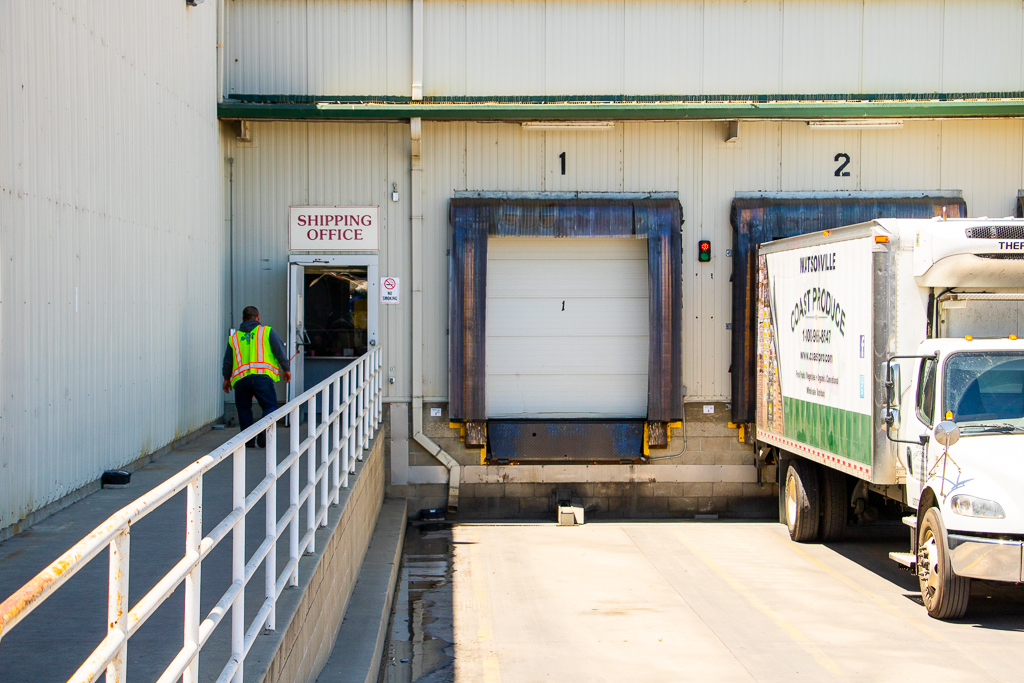The National Organic Program (NOP) has published a new Frequently Asked Question (FAQ) for U.S. importers on the Strengthening Organic Enforcement website. This FAQ outlines the responsibilities and options for U.S. importers when an organic shipment arrives without a valid NOP Import Certificate.
Steps for CCOF-Certified Importers
If you are a CCOF certified importer and have received an organic import without a valid NOP Import Certificate, submit the following information to inbox@ccof.org:
- Exporter’s Name and Certifier
- Shipment Information (Product, Lot #, Shipment Date)
- Evidence that the product was not sold, labeled, or represented as organic in the U.S. market
- Recondition: Pictures of the process, final state of the product, and copies of invoices
- Re-export: CBP 7512, Export Booking Confirmation
- Donate: Donation documentation
- Destruction: CBP Certificate of Destruction
The full text of NOP’s FAQ is copied below. Additional FAQs can be found here.
NOP FAQ: Options for Organic Imports Arriving Without a Valid NOP Import Certificate
Q 23: What are the options for organic imports that arrive without a valid NOP Import Certificate?
Imported products labeled as organic but arriving without a valid NOP Import Certificate do not comply with the USDA organic regulations. These products must not be sold, labeled, or represented as organic in the U.S. market. Importers of these products can take the following actions:
Reconditioning:
Reconditioning refers to the process of modifying the packaging of the product to remove all references to “organic” that are regulated under USDA’s organic standards, allowing it to be sold as conventional in the U.S. market. All steps taken to recondition products are the responsibility of the importer and must follow this process:
- The Customs broker will file the entry as a conventional product – using the reconditioning code 010-420-L within the ACE OR 2 message set. The importer will need to provide the Customs broker with a new invoice (reinvoiced) showing the product is conventional.
- The importer of the shipment must notify the certifier of this shipment, as well as the certifier of the importer, that the product is being reconditioned.
- The product must be taken to an offsite location of the importer’s choosing. At this location, all organic markings in the shipment must be either removed entirely or fully obscured, including all product packaging and labeling. This includes, but is not limited to: outer packaging, inner packaging, individual labeling, and any references/claims of organic status.
- Documentation must be kept that proves that reconditioning was completed in entirety – including pictures of the process, the final state of the product, and new invoice. Documentation will need to be sent electronically to the importer’s certifier and when requested, to the USDA.
- If at any point during a USDA audit or inspection by the importer’s certifier, the product is found to have been sold as organic at the wholesale or retail level and not fully reconditioned, the importer would be held liable and subject to adverse actions as well as intellectual property rights violations for the fraudulent organic claim/use of the USDA Organic seal.
Re-exporting:
For importers who choose to re-export a shipment of products labeled as organic that arrives without a valid NOP Import Certificate, the importer must retain a copy of the CBP 7512 form, and Export Booking Confirmation, to be provided to the importer’s certifier and USDA upon request. The Customs broker will still need to use the reconditioning code 010-420-L within the ACE OR 2 message set.
Donations:
An importer may choose to donate a shipment of imported products that are labeled organic but arrive without a valid NOP Import Certificate. The importer must provide documentation that the shipment was donated to a charity, nonprofit, or other similar entity to the importer’s certifier. The importer must maintain the documentation in an electronic format and provide it to the USDA upon request. The Customs broker will still need to use the reconditioning code 010-420-L within the ACE OR 2 message set.
Destruction:
Importers can choose to destroy the non-organic shipment as well. An official CBP Certificate of Destruction must be provided to the importer’s certifier. The importer must maintain the certificate in an electronic format and provide it to USDA upon request. The Customs broker will still need to use the reconditioning code 010-420-L within the ACE OR 2 message set.
